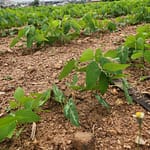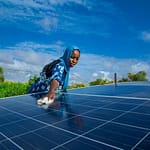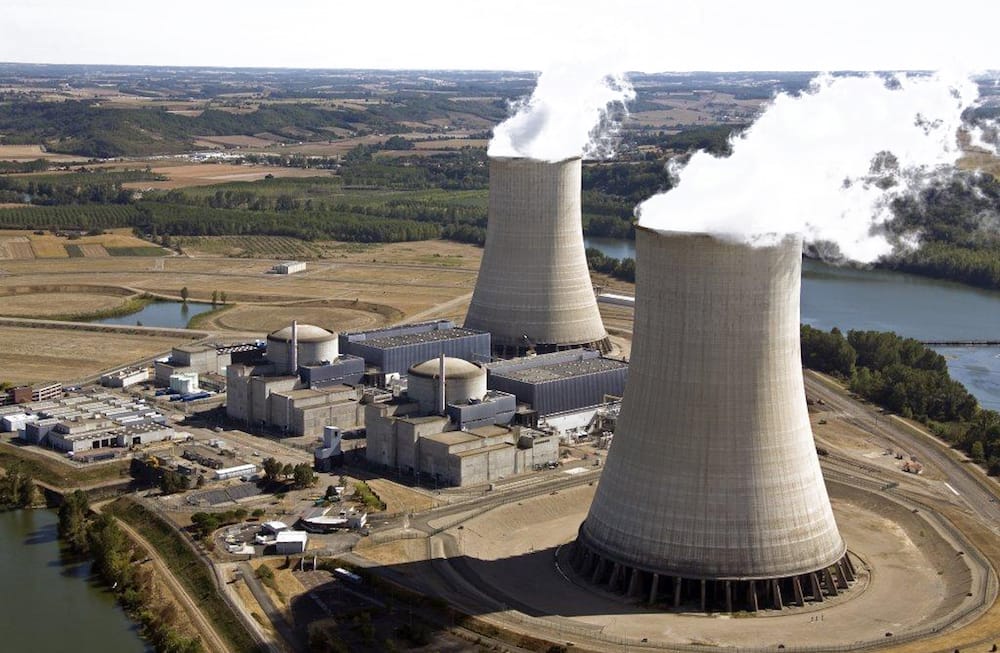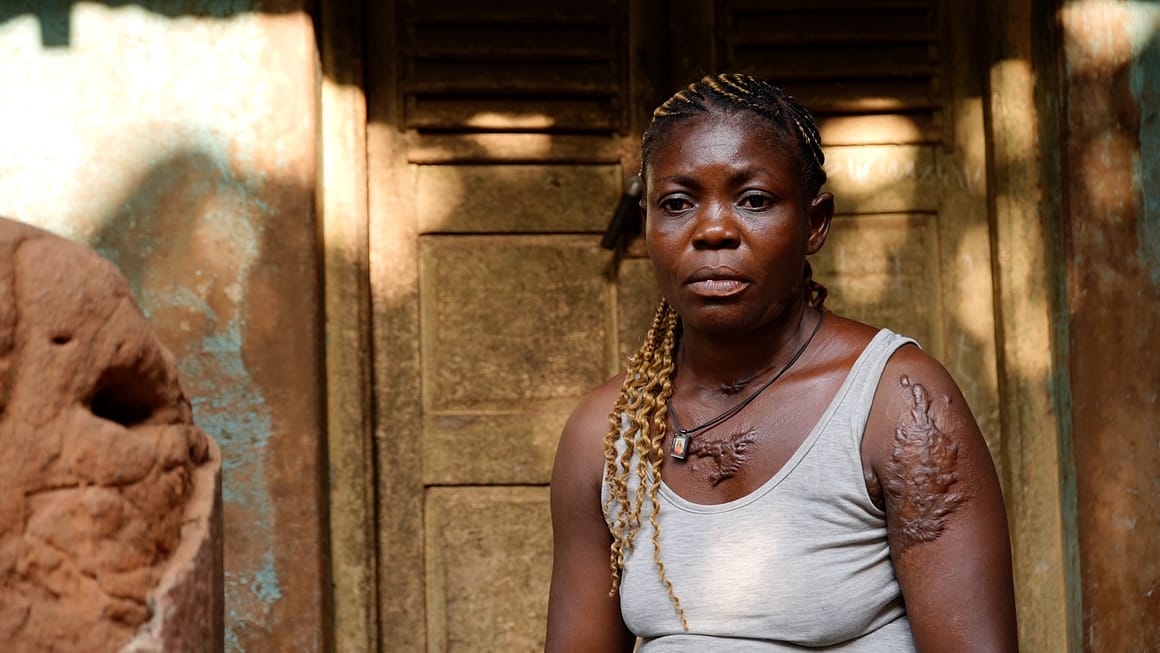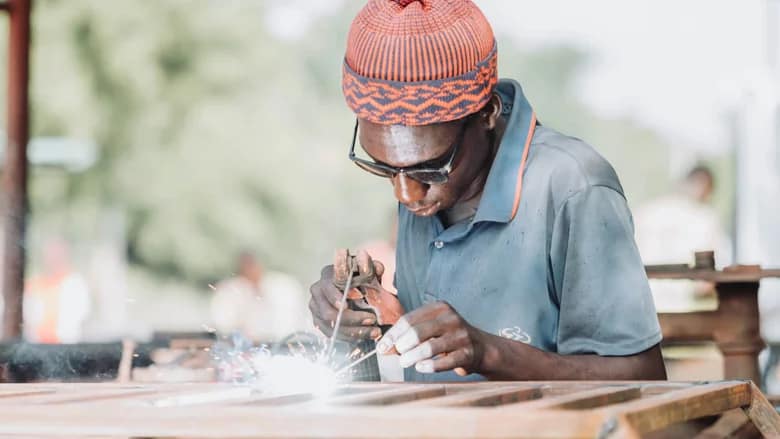Chrissy Lingson, 19, was afraid to go back to school after Tropical Cyclones Ana-induced raging floods destroyed her entire Kanseche Village in Chikwawa District, Malawi. The three-day torrential rainstorm forced the Mwanza River in Malawi to break its banks, shattering 482 houses in this part of Traditional Authority (T/A) Lundu on the night of January 25, 2022.
The displaced girl’s family of four and other 2380 people fled to a crammed emergency evacuation camp on January 26 at Dala Village in T/A Maseya.
Like other survivors, Chrissy escaped the floods with only the clothes she was wearing on the night of the tragedy.
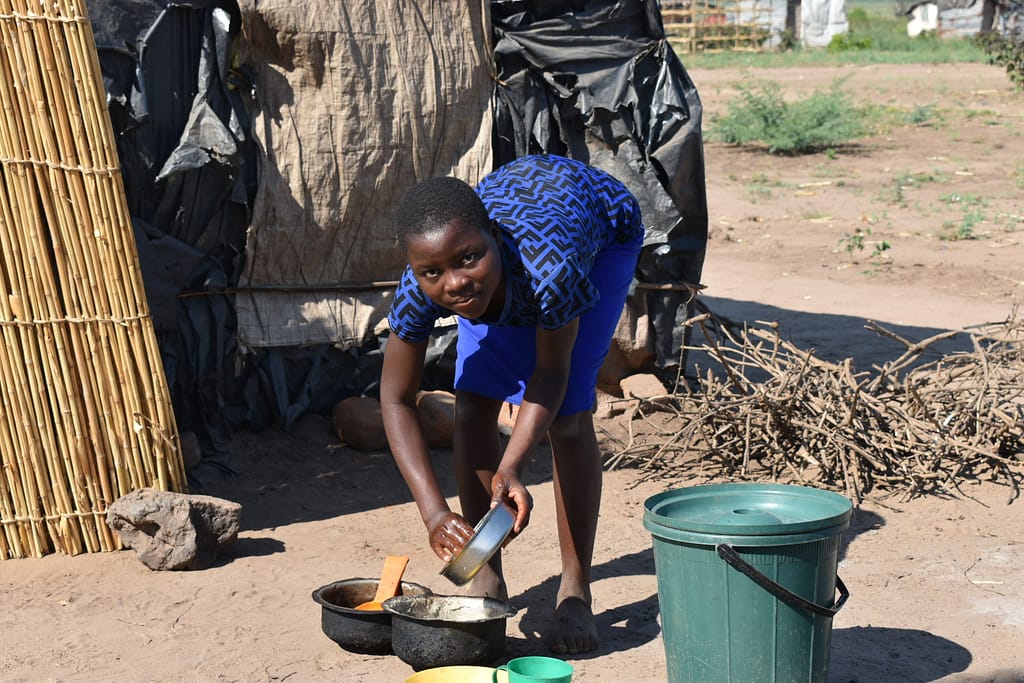
“Without hanging on trees, we could have been swept to the grave,” the teen girl recalls. “Water was everywhere. My parents helped me and my siblings climb a tree. It was heartbreaking to see from there the floods damaging our home and washing away our possessions, including livestock.”
The girl says she is still haunted by the sight of the surging floods, crumbling homes, and animals panting for air as they were being swept away. For the safety of school-going children, the Ministry of Education suspended classes for a day during the storm.
However, the Standard Six learner at Mwanza Primary School could not go to school for three weeks.
Chrissy says she was mentally shattered and lost interest in school.
“The floods took away my school materials, including my uniform,” she recounts. “I was depressed to the extent that I could not feel safe going out of makeshift shelters to play.”
Children who have experienced a natural disaster may suffer long-term physical, psychological, and educational deficits, according to the Society for Research in Child Development. It further says that these children experience depression symptoms such as feeling sad or losing interest in activities.
One of the parents, Matinesi Thayo, says they could not allow children to go to school after the disaster as there was anxiety and worry about safety.
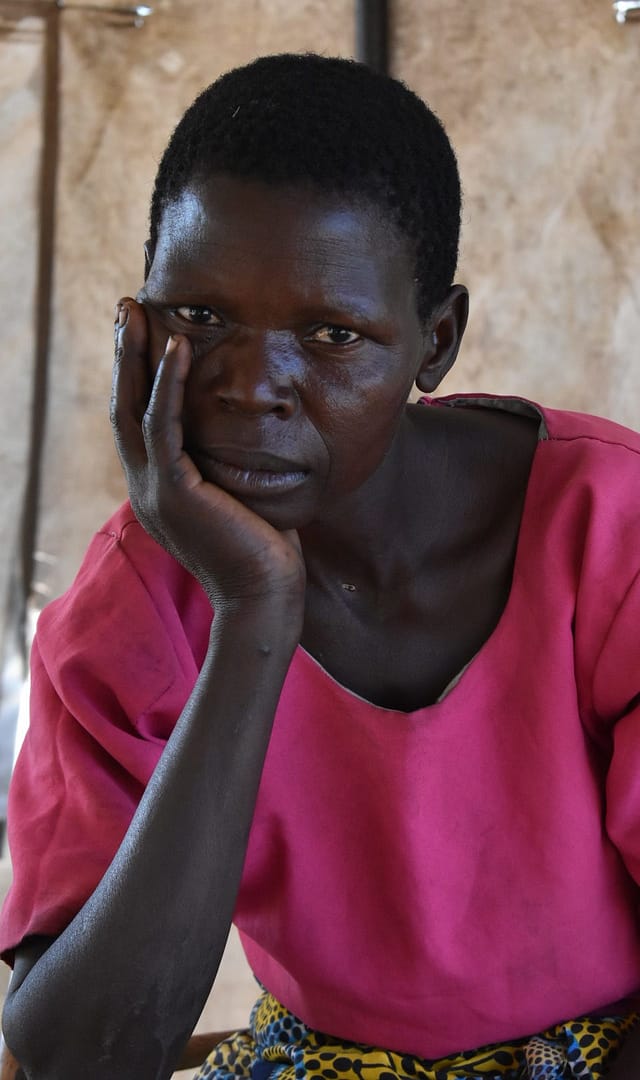
“We had been displaced, and floodwater was still above the classrooms’ window levels. We opted to wait much longer and see our children at the camp than send them to school where safety was not guaranteed,” she says with a dejected face.
With all her belongings ruined, Chrissy adds that she was psychologically tortured for struggling to manage her monthly periods at the congested camp.
Before escaping the disaster, like other rural poverty-stricken girls, she improvised pieces of old clothes as her sanitary pads that she lost to the floods.
“I was ashamed and in pain for struggling to manage my menstrual periods. I was not free to partake in public life,” she says.
Thayo adds that they were stressed by the challenges of managing the natural biological process as the people regard them as outcasts due to myths around menses.
With their land now a river and way of floods, the displaced Kanseche communities were given a safer settlement in T/A Maseya.
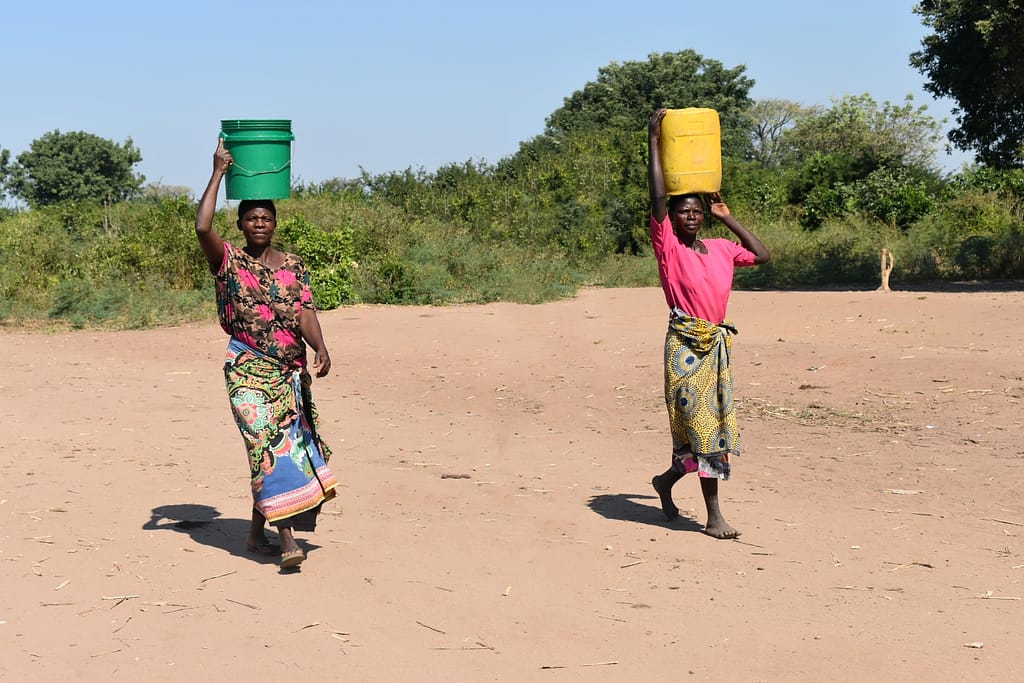
But the village’s secretary, Pilirani Mailosi, says they are struggling to rebuild their lives as the misfortune has crumbled their lives into poverty.
The households lost everything and were reduced to beggars in the wink of an eye.
“We (men) lack confidence and struggle to take risks to improve the lives of our families again because we fear losing to floods and other climatic shocks,” says Mailosi.
They stay in makeshift shelters at the new place. Stenala Jimu, the area’s chairperson, says they cannot sprout from zero without holistic support.
“We succumb to post-traumatic stress disorder when we think of our crumbled livelihoods and food,” he said, paused, and shook his head. “Most days, I do not know how I am going to feed my six children because piecework is becoming rare.”
Read also: STREET DIARIES
Due to gender norms, women, children, and girls have no peace of mind as the place has no safe drinking water. Malawi Red Cross Society (MRCS) drilled two boreholes for the population of 2,380, but the communities claim the water is ‘too salty’ for drinking.
Patricia Kachiya says they must endure lengthy and multiple trips to fetch drinking water outside the village every day.
“This is a burden and source of worry among women, children, and girls,” says the mother of eight. “We lose energy and six hours collecting water from Dala, Misiri, Mafuwa or Kaphiri villages. The long trips with water buckets weighing down our heads cause physical pains.”
The 45-year-old woman says she is always worried about not having time to manage her home well and take care of the children.
“The situation supports our struggle as we even do not have enough time to innovate or plan on how to recover from the tragedy with much lost on getting drinking water. Now I also suffer from high blood pressure,” she says.
The poor tend to suffer the worst consequences of climate change in a ‘poverty-environment trap,’ according to Crises of Inequality, 2022’s United Nations (UN) Research Institute for Social Development flagship report.
Watch LIDA NETWORK on YouTube
Reads the report: “Low-income households are likely to be located in or near flood-prone areas, to be displaced due to weather-related disasters and suffer from climate impacts because their livelihoods are directly dependent on agriculture.”
Mailosi says the mental and physical health impacts of the tragedy frustrate their desire to curb poverty.
“Depression prevents us from having clear heads to forge ahead. The floods eroded our years of hard work and development. Now life is hard,” he says.
Andrew Matewere says they are stressed to the extent that they cannot strive to be economically active.
“This affects us to move out of prone areas along the rivers and get money to erect durable houses,” says the area’s civil protection committee vice chairperson.
This story was produced with support from International Institute for Environment and Development (IIED)




